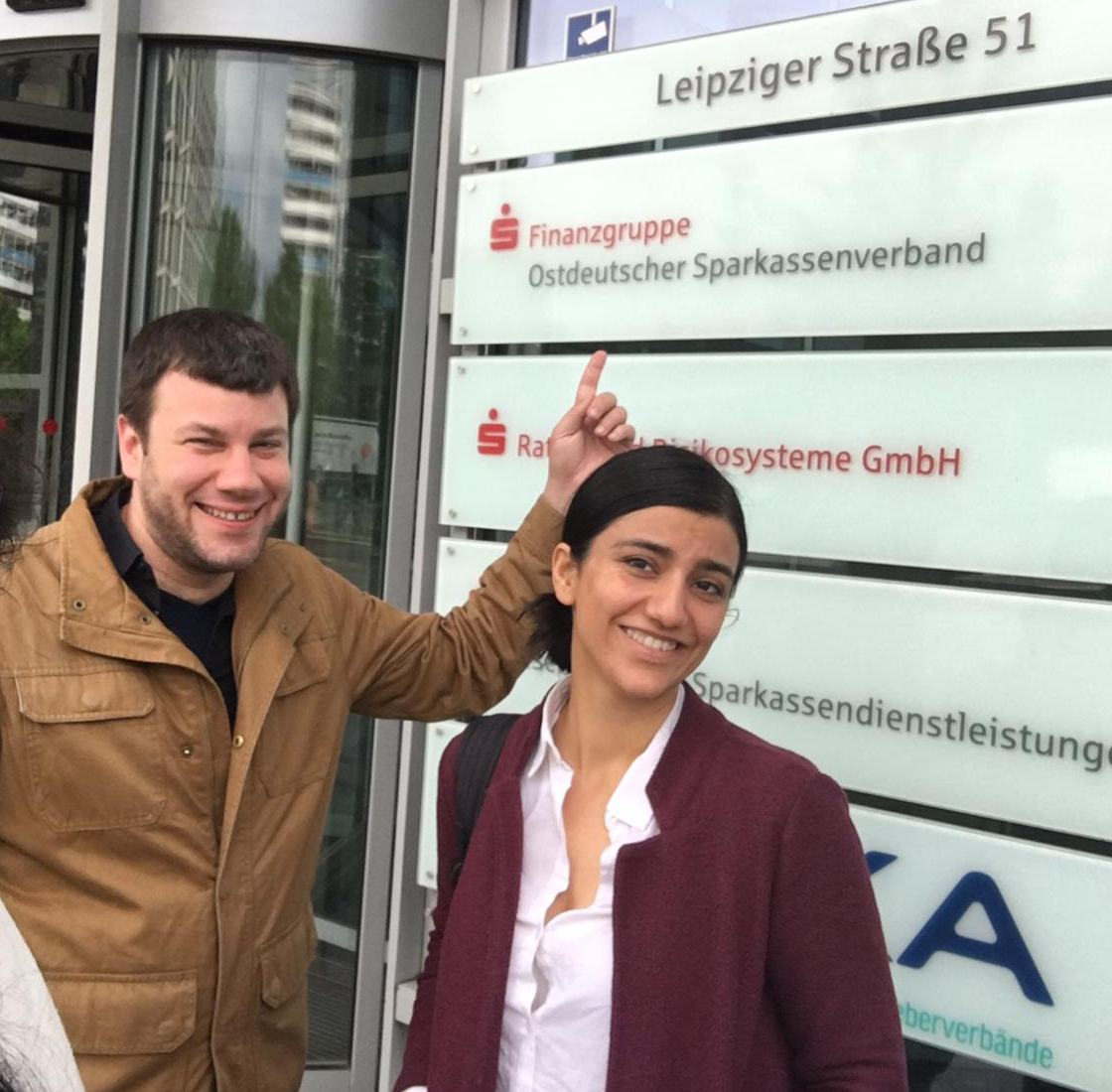Blog
July
2019
26
Earth to NYC: “You Need a Public Bank”
Posted by Ali Issa

New Economy Project coalition organizer Ali Issa and interpreter
Although public banking is an unfamiliar concept to many here in the United States – there’s only one notable example, the Bank of North Dakota – public banks are common throughout the world.
Last month, I had the chance to travel to Berlin, Germany. While there, I visited the Sparkassen-Finanzgruppe, part of Germany’s network of publicly-owned banks. Sparkasse is German for savings bank.
As the coalition organizer of Public Bank NYC, I was interested in learning more about, and potentially drawing lessons from, Germany’s experience with public banking. I sat down with Frank Klemmer, Vice Director of Sparkassen-Berlin’s Department on Fundamental Issues, for a conversation about what the Sparkassen do and how they do it.
Frank explained that there are more than 400 Sparkassen in Germany – practically one for every German city and town. All of them, he said, are mission-bound to serve the public interest and local development within their respective jurisdictions. Many Sparkassen have financed renewable energy projects, for example, helping to propel Germany toward its rapid energy transition goals.
“So who makes the decisions for a Sparkasse’s investments?” I asked.
“Local officials and bank staff play a role,” he replied. “But also very important is that one-third of the supervisory board is made up of specially-trained community members, keeping the bank accountable and on-mission. That means if the local community does not want us to invest in, say, fossil fuels, weapons or prisons, we do not do so.”
Frank added that part of his job is to train people like small business owners and union leaders to serve on the supervisory board, “making the bank more democratic.”
Beyond Germany, there are almost 600 public banks throughout the world, which together account for one-fourth of total banking assets world-wide. Costa Rica’s Banco Popular y de Desarrollo Comunal, 100% cooperatively-owned by workers and controlled by both worker and government representatives, offers another inspiring model.
Here in New York City, we are working for a municipal public bank that supports community-led development and non-extractive investments. We are well aware that public banks come in different shapes and sizes, reflecting widely divergent contexts, and should not be idealized. Simply put, a public bank is only as good as its mission, mandate, and governance structure.
The Public Bank NYC coalition is fighting for a public bank rooted in values of racial, economic and environmental justice. We are working to expose how our money – billions of public dollars on deposit with Wall Street banks – is therefore implicated in activities by banks that perpetuate poverty, segregation and inequality in our city and beyond.
In fact, when I explained to Frank that our laws actually require that public funds be deposited exclusively in private commercial banks, he replied, “How can you live like this?” Our hope is that we won’t be doing so for long.
A municipal public bank for NYC could back community-controlled renewable energy initiatives, worker, food and financial cooperatives, permanently-affordable housing, and more. It would allow us to divest our public money from Wall Street banks that harm New Yorkers and New York communities, and that invest in destructive industries that fuel climate change.
As we build a movement here, we are excited to keep making these links across the U.S. and the world. Next stop: Costa Rica!
______________
Photo by Ansar Jasim. The conversation with Mr. Frank Klemmer was edited for brevity and clarity.